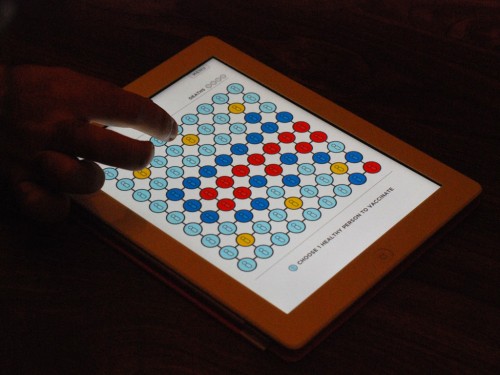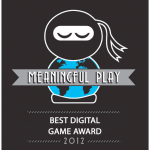Revisiting POX in the flu season!
Years ago we created a board game, POX: Save the People, a gane tgat helped players understand infections diseases, as well as ZOMBIEPOX and POX: Save the Puppies, about vaccinating pets. Watch a video about the project, read an interview, and read one paper about an empirical study, looking at the basic question of whether transferring a public health game from an analog to a digital format would impact players’ perceptions of the game and the efficacy of the game for stimulating changes to beliefs and cognitions; or read paper two which looked at the design process and how we modeled “herd immunity.” We love public health, with or without the undead.







